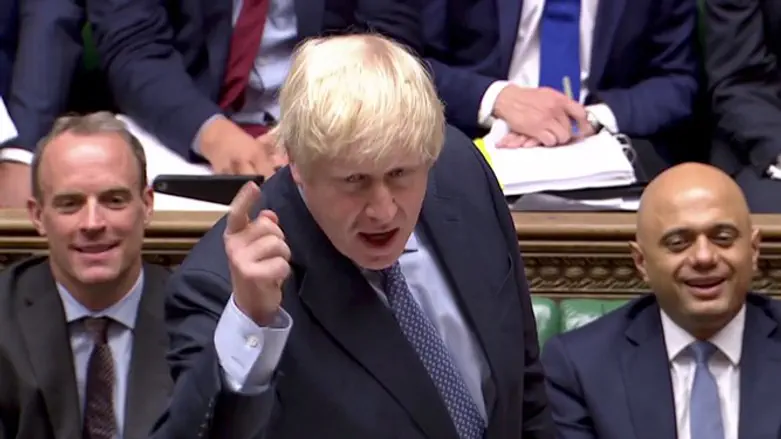
British Prime Minister Boris Johnson on Saturday night reluctantly wrote to Brussels asking for a Brexit extension, after MPs voted to force him into seeking a delay beyond October 31.
But Johnson, who has pinned his premiership on getting Britain out of the European Union on time, refused to sign the letter he sent to European Council President Donald Tusk, reported AFP.
The Conservative leader, who had to send the letter to abide by the law, also sent a second signed letter insisting he was not seeking an extension to the Brexit deadline, which has already been postponed twice.
Earlier on Saturday, MPs declined to give their backing to the revised withdrawal agreement Johnson struck with the EU this week until the legislation needed to ratify it has passed.
Having failed to back a deal, they triggered a law requiring Johnson to write to EU leaders by the end of the day asking to delay Brexit, to avoid the risk that Britain crashes out in less than a fortnight.
A source in Johnson's Downing Street office said Johnson had sent a photocopy of the letter contained in the law that requires him to ask for the delay if there is no Brexit deal, but did not sign it.
He signed another letter which makes clear he does not want to delay Brexit beyond the end of this month.
A third letter written by Britain's EU ambassador Tim Barrow explained that the Brexit delay letter was only being sent to comply with the law.
Johnson's signed letter was circulating on several British media outlets.
"Regrettably, parliament missed the opportunity to inject momentum into the ratification process," he wrote, regretting that EU leaders would now have to spend yet more time on Brexit.
"A further extension would damage the interests of the UK and our EU partners, and the relationship between us. We must bring this process to a conclusion," he added.
Johnson nonetheless said he remained "confident" of completing the ratification process by October 31.
Being forced to send the letter after Saturday's defeat was a blow to Johnson, who has declared in the past he would rather be "dead in a ditch" than prolong the process of ending Britain's 46-year-old membership of the EU.
In a letter to Conservative MPs afterwards, he warned that the other 27 EU states might reject parliament's request for a delay.
The British government will introduce legislation next week to implement the divorce deal, with a first vote as soon as Tuesday, according to AFP.
There is a chance the deal could pass, and Britain could still leave the EU on October 31, but there remains strong opposition to the agreement among MPs.
Johnson has already suffered several defeats in the Brexit process since taking over as Prime Minister from Theresa May.
In September, the British Parliament voted to delay Brexit. The vote on the bill to delay a no-deal Brexit was made possible after a cross-party alliance defeated Johnson in parliament a day earlier.
The vote allowed the opposition and rebels to take control of parliamentary business and bring to a vote the law forcing Johnson to ask the EU to delay Brexit until January 31 unless he has a deal approved by parliament beforehand on the terms and manner of the exit.
In response to that move, Johnson sought to hold early elections, but parliament twice voted to reject that motion.